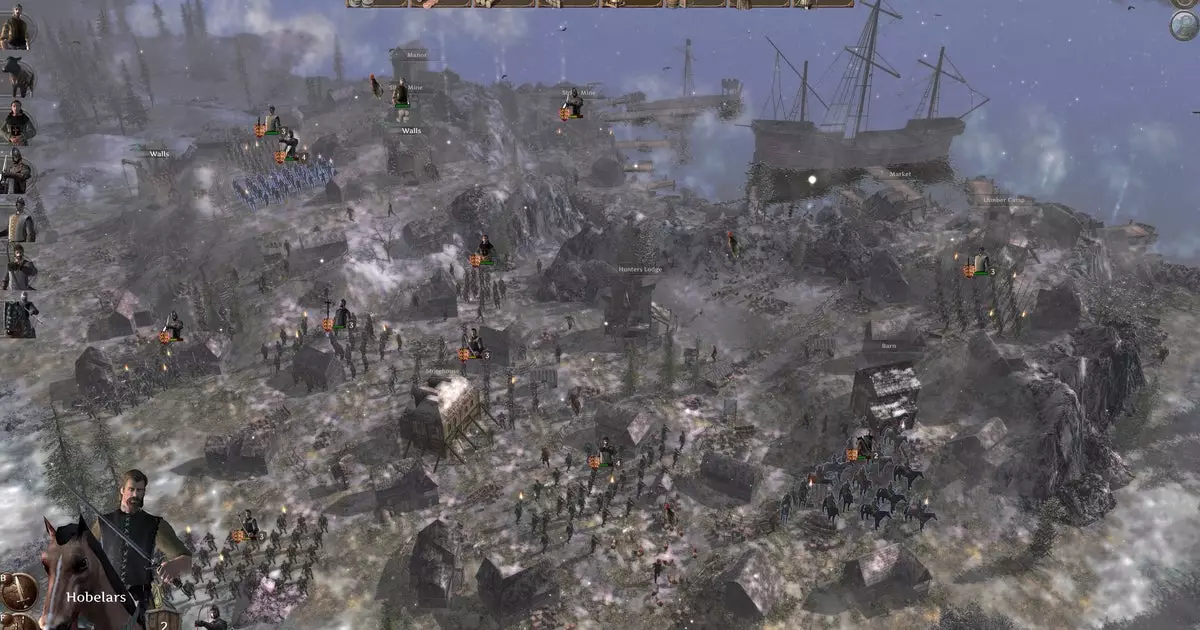The Crusades, a pivotal series of medieval conflicts, serve as a multifaceted tapestry of history woven with threads of religious zeal, territorial ambition, and profound cultural impact. Traditionally viewed through the binary lenses of good versus evil, these fervent campaigns for the Holy Land unfold as a mixture of passion and desperation. In our modern era, the tale of the Crusades has unwittingly morphed into a battleground for various ideological interpretations, often hijacked by misinformed zealots who brandish simplified slogans like “deus vult” to further their agendas. However, beneath the surface lies a complex historical narrative that deserves a more nuanced examination supported by both academic scholarship and interactive media.
The Influence of Gaming on Historical Perception
As historical narratives permeate contemporary culture, the gaming industry has made significant strides in shaping our collective perception of past events. Titles like “Knights Of The Crusades,” which recently launched into early access, represent this intersection between entertainment and historical exploration. This grand strategy game allows players to traverse through the First Crusade and beyond, offering unique perspectives on the experiences of both Christian and Muslim factions during this tumultuous period. Such games not only entertain but also serve as gateways to deeper understanding.
Games like “Knights Of The Crusades” provide an engaging avenue to explore historical complexities that textbooks often oversimplify. This is significant for a subject fraught with bias and interpretation, as players select a faction and navigate intricate political landscapes that mirror the historical struggles for power, faith, and territory. The developers take their task seriously, pledging to craft an immersive experience that avoids sanitization, ensuring that all aspects of this conflict—no matter how brutal—are represented authentically.
Cultural Representations: A Double-Edged Sword
Despite the potential for educational value, the portrayal of the Crusades in gaming can also present troubling pitfalls. In their pursuit of excitement and engagement, developers may inadvertently glamorize warfare and conquest, presenting a sanitized version of morality where aggression is justified in the name of righteousness. The prospect of raiding “hamlets” and annihilating “innocents” undermines the very lessons that history should impart about the futility and devastating consequences of violence.
Furthermore, the risk of romanticizing figures like Richard the Lionheart through gameplay intersects dangerously with modern ideological divisiveness. While some players may appreciate the intricate strategies, others might embrace the battles more fervently, fueling an increasingly reckless glorification of historical conflict. Such portrayals can spur misguided admiration for historical figures known more for their brutality than their heroism, posing the critical question: how do we balance entertainment with ethical representation in histories that involve widespread suffering?
Expanding the Historical Conversation Through Diverse Perspectives
For a well-rounded exploration of the Crusades, one must consider perspectives beyond the familiar Christian narratives. The Islamic response to the Crusades, including the perspectives of the Rashidun Caliphate and subsequent Islamic empires, is an equally vital component. Games should strive to represent a multifaceted view that incorporates the economic, social, and political ramifications experienced by all parties involved.
Interactive experiences can also enhance engagement with a diverse range of historical accounts, fostering empathy and understanding for peoples and cultures often rendered invisible in mainstream discussions. This is where titles that thoughtfully encompass the range of experiences during the Crusades can create opportunities for meaningful engagement and discussion, opening new avenues to learn about history from multiple angles.
Bridging the Gap: Historical Research and Interactive Exploration
The exploration of the Crusades through gaming showcases not only the evolution of our understanding of history but also highlights the need for an informed approach to historical narratives. While games such as “Knights Of The Crusades” prompt interest and debate, the onus rests on both developers and players to engage critically with the material.
As you embark on this journey of exploration, enriching your understanding requires freedom from oversimplification. Whether through historical games, literature, or dedicated research, enriching the discussion about the Crusades’ legacy is imperative. Ultimately, it is through this thoughtful engagement that we can carve out a clearer path toward comprehending the complexities of our shared human past.


Leave a Reply